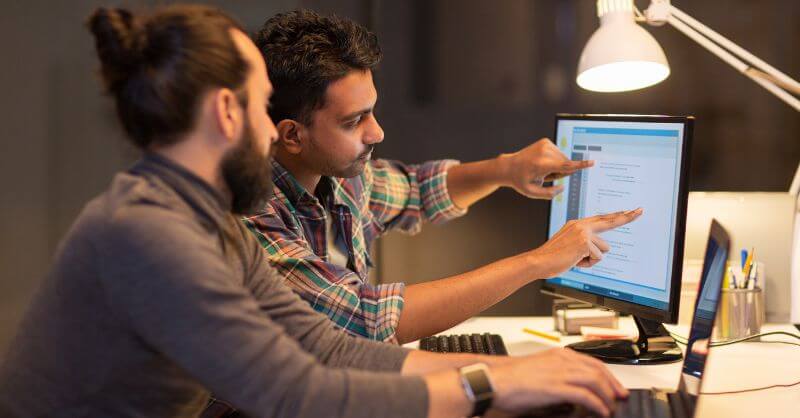WordPress is the most popular content management system in the world. It's used by millions of people, including some of the biggest brands in the world.
WordPress is open-source software, meaning anyone can contribute to its development. This is one of the things that makes WordPress so great. But it also means that there are potential security vulnerabilities that hackers can exploit.
The good news is that you can take steps to make your WordPress website more secure. This blog post will show you the anatomy of a secure WordPress website.
So how can you keep your WordPress website secure? Let's take a look at some tips.
Keep Your WordPress Updated
WordPress releases new versions regularly, and each new version includes security fixes. So it's crucial to stay up-to-date. If you don't keep your WordPress updated to the latest version, you're missing out on important security updates that can help protect your website from attacks.
Regular Backups are a Must
No matter how secure your WordPress website is, there's always a chance that something could go wrong. That's why it's essential to have regular backups of your site. Then, if your site is hacked or compromised, you can restore it from a backup and minimize the damage.
Use Strong Passwords
Using strong passwords is one of the most basic but essential things you can do to secure your WordPress website. A strong password mixes upper and lowercase letters, numbers, and special characters. It should be at least 8 characters long.
Enable Two Factor Login Authentication
Two-factor authentication (2FA) is an extra layer of website security that requires you to enter a code from your phone and your password when logging in. Using 2FA makes it much harder for hackers to access your account, even if they have your password.
Log Out Idle Users Automatically
Another security measure you can take is automatically logging out idle users after a certain amount of time. This way, even if someone does manage to get access to your account, they won't be able to do much damage because they'll be logged out after a few minutes.
Limit Login Attempts
Another way to secure user login is to limit the number of login attempts allowed. This way, even if a hacker has your password, they won't be able to brute force their way into your account because they'll be locked out after a few tries.
Manage File Permissions Securely
Files on your WordPress website have permissions that determine who can read, write, or execute them. Therefore, managing file permissions securely is important to prevent unauthorized access.
Choose a Secure Web Host
Your web host plays a significant role in the security of your WordPress website. So choose a reputable and secure web host. A good web host will have security measures in place to protect your sites, like firewalls and malware scanning.
Use Secure Connection (SSL)
If you're running a WordPress website, you should use a Secure Sockets Layer (SSL) to encrypt traffic between your site and visitors' browsers. SSL is important for security, but it also has SEO benefits. Google prefers SSL sites, so it's worth getting set up.
Disable PHP Error Reporting and XML-RPC
If you don't need PHP error reporting or XML-RPC, it's best to disable them. This will help to prevent potential security vulnerabilities. There are a couple of different methods you can use to disable these features.
You can either edit your wp-config.php file or add the following line of code to your .htaccess file:
# Block WordPress xmlrpc.php requests
<Files xmlrpc.php>
order deny, allow
deny from all
allow from 123.123.123.123
</Files>Restrict Access to Wp-Config.PHP
The wp-config.php file is one of the most critical files on your WordPress website. It contains your database information and other sensitive data. So it's crucial to restrict access to this file.
You can do this by adding the following line of code to your .htaccess file.
#secure wp-config.php
<files wp-config.php>
order allow, deny
deny from all
</files>Block Hotlinking From Other Websites
Hotlinking is when another website links to an image or file on your website. This can use up your bandwidth and cost you money. It can also be a security risk. So it's best to block hotlinking from other websites.
There are a few different ways to block hotlinking from other websites in WordPress. One way is to use the .htaccess file in your WordPress installation's root folder. Another way is to use a plugin like Jetpack or W3 Total Cache.
Install a WordPress Security Plugin
Several WordPress security plugins can help to secure your website. Wordfence, Sucuri, and iThemes Security are the most popular plugins. These plugins offer a variety of features, like malware scanning, firewalls, and two-factor authentication.
Invest in Network Security
A secure network makes your WordPress site safer from hackers by encrypting all traffic between your site and its users. This makes it much harder for anyone to intercept or spy on traffic between your site and its visitors. However, they can steal passwords, credit card numbers, or other sensitive information if they succeed.
A secure network also helps protect against distributed denial of service (DDoS) attacks, a common means of trying to take down WordPress sites. Routing all traffic through a secure network can make it much more difficult for attackers to succeed in bringing your site down.
Get a Secure WordPress Website
Building a secure WordPress website takes effort, but protecting your site from attacks is worth it. Following the tips in this blog post can make your WordPress website more secure and less vulnerable to attack. We can help you secure your WordPress website. Our website development experts can help you choose the proper security measures for your site and set you up with a plugin that fits your needs. Contact us today to learn more about our WordPress security services and web development solutions.



